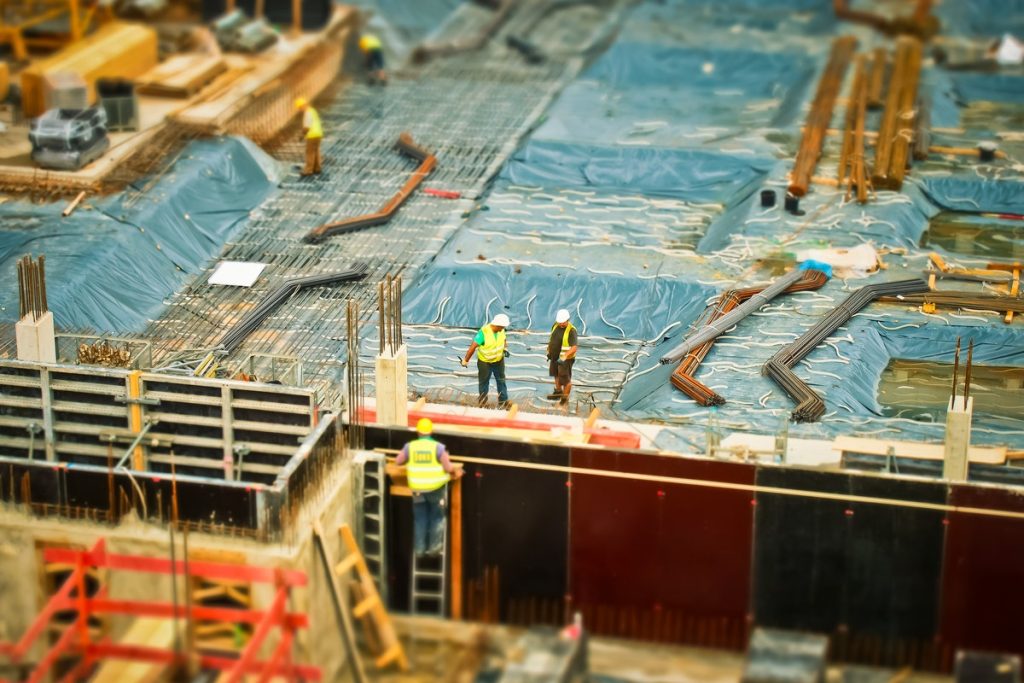- Site preparation and foundation design are critical considerations when constructing industrial buildings.
- Suitable materials for an industrial building are crucial, including steel, concrete, and masonry.
- Epoxy tech floor coatings provide excellent slip resistance and durability for industrial flooring.
- A well-constructed roof protects the building and its contents from adverse weather conditions.
- Industrial buildings must meet all required government codes and regulations, including fire protection and mechanical and electrical codes.
When it comes to industrial building construction, several key considerations must be taken into account to ensure the building’s durability. Industrial buildings, including warehouses and distribution centers, must be designed to withstand heavy usage and harsh conditions. These buildings must be constructed with safety, functionality, and durability.
This blog post will discuss the key considerations that must be considered when constructing industrial buildings. It will explore using durable materials, proper planning, and design to ensure safe and functional facilities that can withstand the tests of time.
Site Preparation and Foundation Design

Site preparation and foundation design are critical considerations when constructing industrial buildings. Preparing the site and designing a solid foundation will ensure the installation can withstand adverse weather conditions and heavy loads. Clearing, grading, and leveling the site before construction will prevent drainage issues, which can lead to damage to the building’s foundation.
Inspecting the soil and ensuring it is compact and stable will prevent soil settling and uneven foundation settling over time. Well-designed foundation systems include properly-sized footings, reinforced slab-on-grade, and quality reinforcement steel bars that intersect to bear heavy loads. A well-constructed foundation is essential to the longevity of the building.
Material Selection
Selecting the right materials for an industrial building is crucial. Using durable materials that can withstand the wear and tear of industrial operations is paramount. The materials may vary depending on the specific industrial process. For example, a warehouse that houses dry goods will require a different building material than a cold storage facility. Some commonly used materials in industrial construction include steel, concrete, and masonry.
Steel is an excellent choice for framing industrial buildings. Their rigid frame structure is durable, less prone to wear and tear, and also fire-resistant. Concrete is ideal for industrial flooring and walls and is generally used in areas with heavy loads. Masonry, a type of concrete made from cement and sand, is used as finishing work for walls at the exterior and interior.
When it comes to flooring, epoxy tech flooring solution is an excellent choice for industrial buildings. Epoxytech floor coatings are highly durable and resistant to extreme temperatures, chemicals, abrasion, moisture, and other damages. This type of coating also provides excellent slip-resistance, making it ideal for use in warehouses or production facilities where safety is essential.
Roof Design and Maintenance

A well-constructed roof protects the building and its contents from adverse weather conditions. Industrial roofs should be designed to withstand heavy snow and rain, prevent leaks, and hold structural weight.
Quality industrial roof systems, like metal roofing, ensure optimal safety and durability. Proper maintenance of the roof is also critical in ensuring a long-lasting building. Regular inspections and roof maintenance ensure its longevity, prevent leaks, and handle any repairs promptly.
Building Code Compliance
Industrial building construction must meet all required government codes and regulations. Regulatory codes exist to ensure safe and functional building construction, and it is crucial to ensure they are followed during planning, design, and construction. Here are some examples:
Fire Protection Code
The fire risk is high in industrial buildings because they often contain flammable materials. To reduce the likelihood of fires, you must have an effective fire protection system. A fire protection system includes fire alarms, sprinklers, and fire extinguishers. The fire protection code also requires that the building has accessible fire exits and clear emergency plans.
Mechanical and Electrical Code
Industrial buildings use machinery and equipment that require electrical and mechanical systems. Therefore, it’s essential to have a mechanical and electrical system that meets the code requirements.
Structural Code
The structural code is in place to ensure that the building can withstand natural disasters such as earthquakes, winds, and other forces. Industrial facilities need a strong structure because they often store heavy machines and equipment.
Plumbing Code
The plumbing code applies to installing and maintaining plumbing systems such as water supply and drainage systems. Industrial buildings often require large amounts of water for production and other purposes.
To Sum Up
In conclusion, industrial building construction must be approached with extreme care and caution. Proper planning and design, using durable materials, and adhering to building codes are all essential in constructing safe, functional, and durable industrial buildings. By considering the key factors discussed in this blog, you can guarantee long-lasting and successful industrial facilities that are conducive to operational efficiency.

